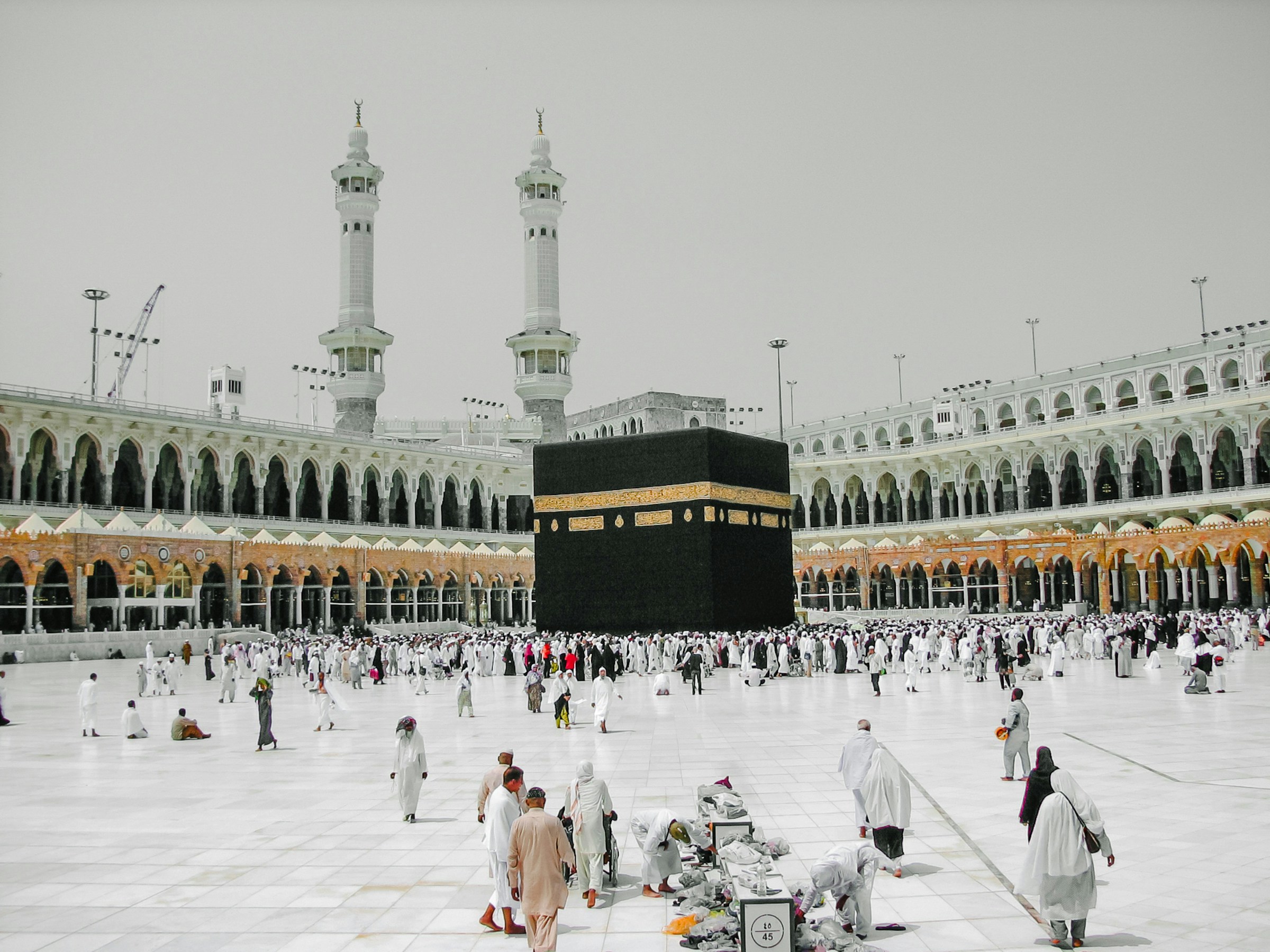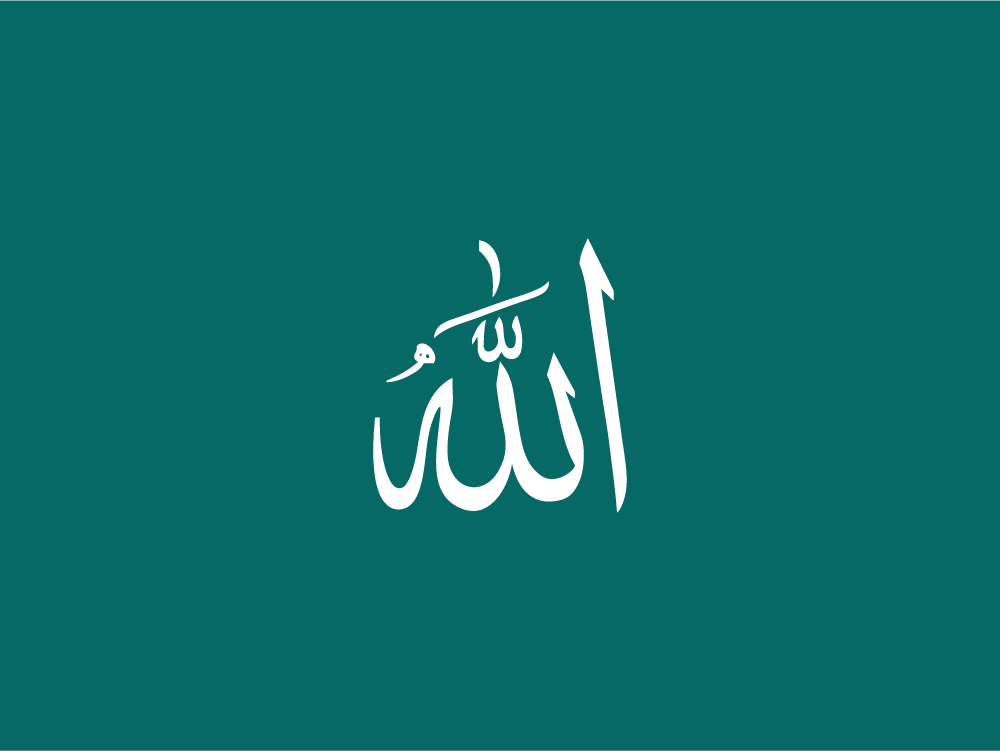

What is Islam?
Definition
The word “Islam” is an Arabic word that means “submitting and surrendering your will to Almighty God”. The word comes from the same root as the Arabic word “Salaam”, which means to achieve peace – with God, within oneself and peace with the creation of God through willing submission to God, and accepting His guidance
Unlike the names used for other religions, such as Buddhism, Hinduism and Christianity, the name for the religion of Islam was both revealed by God and carries a deep spiritual meaning – only by submitting one’s will to Almighty God can one obtain true peace both in this life and in the life hereafter.
Islam teaches that many religions originally had the same essential message – which was to submit whole-heartedly to the will of God and to worship Him and Him alone. For this reason, Islam is not a new religion but is the same divinely revealed Ultimate Truth that God revealed to all prophets, including Noah, Abraham, Moses and Jesus.
Who are Muslims?
What does "Muslim" mean?
The Arabic word “Muslim” literally means “someone who submits to the will of God”.
What does it mean to be Muslim?
The message of Islam is meant for the entire world and anyone who accepts this message becomes a Muslim.
Some people mistakenly believe that Islam is just a religion for Arabs, but nothing could be further from the truth, since in actuality over 80% of the world’s Muslims are not Arabs! Even though most Arabs are Muslims, there are Arabs who are Christians, Jews and atheists.
If one just takes a look at the various peoples who live in the Muslim World – from Nigeria to Bosnia and from Morocco to Indonesia – it is easy enough to see that Muslims come from all different races, ethnic groups and nationalities.
From the very beginning, Islam had a universal message for all people. This can be seen in the fact that some of the early companions of the Prophet Muhammad were not only Arabs, but also Persians, Africans and Byzantine Romans. Being a Muslim entails complete acceptance and active obedience to the revealed will of Almighty God.
A Muslim is a person who freely accepts to base his beliefs, values and faith on the will of Almighty God. In the past, even though you don’t see it as much today, the word “Mohammedans” was often used as a label for Muslims. This label is a misnomer and is the result of either wilful distortion or sheer ignorance. One of the reasons for the misconception is that Europeans were taught for centuries that Muslims worshipped the Prophet Muhammad in the same way that Christians worship Jesus. This is absolutely not true since a Muslim is not permitted to worship anyone or anything besides Almighty God.


What do Muslims believe?
The foundation of the Islamic faith is belief in the Unity of God. This means to believe that there is only one Creator and Sustainer of everything in the Universe, and that nothing is divine or worthy of being worshipped except for Him.
Truly believing in the Unity of God means much more than simply believing that there is “One God” – as opposed to two, three or four. There are a number of religions that claim belief in “One God” and believe that ultimately there is only one Creator and Sustainer of the Universe. Islam, however, not only insists on this, but also rejects using such words as “Lord” and “Saviour” for anyone besides Almighty God. Islam also rejects the use of all intermediaries between God and Man, and insists that people approach God directly and reserve all worship for Him alone. Muslims believe that Almighty God is Compassionate, Loving and Merciful.
The essence of falsehood is the claim that God cannot deal with and forgive His creatures directly. By over-emphasising the burden of sin, as well as claiming that God cannot forgive you directly, false religions seek to get people to despair of the Mercy of God. Once they are convinced that they cannot approach God directly, people can be mislead into turning to false gods for help. These “false gods” can take various forms, such as saints, angels, or someone who is believed to be the “Son of God” or “God Incarnate”. In almost all cases, people who worship, pray to or seek help from a false god don’t consider it to be, or call it, a “god”. They claim belief in One Supreme God, but claim that they pray to and worship others beside God only to get closer to Him. In Islam, there is a clear distinction between the Creator and the created. There is no ambiguity in divinity – anything that is created is not deserving of worship and only the Creator is worthy of being worshipped. Some religions falsely believe that God has become part of His creation, and this has led people to believe that they can worship something created in order to reach their Creator.
Muslims believe that even though God is Unique and beyond comprehension – He has no “Son”, partners or associates. According to Muslim belief, Almighty God “does not beget nor was He begotten” – neither literally, allegorically, metaphorically, physically or metaphysically – He is Absolutely Unique and Eternal. He is in control of everything and is perfectly capable of bestowing His infinite Mercy and Forgiveness to whomever He chooses. That is why is called the All-Powerful and Most-Merciful. Almighty God has created the Universe for man, and as such wants the best for all human beings. Muslims see everything in the Universe as a sign of the Creatorship and Benevolence of Almighty God. Also, the belief in the Unity of God is not merely a metaphysical concept. It is a dynamic belief that effects ones view of humanity, society and all aspects of life. As a logical corollary to the Islamic belief in the Oneness of God, is its belief in the oneness of mankind and humanity.

Who is Allah?
Very often one will hear the Arabic word “Allah” being used in regards to Islam. The word “Allah” is simply the Arabic word for Almighty God, and is the same word used by Arabic speaking Christians and Jews.
If one were to pick up an Arabic translation of the Bible, one would see the word “Allah” being used where the word “God” is used in English. Actually, the Arabic word for Almighty God, “Allaah”, is quite similar to the word for God in other Semitic languages – for example, the Hebrew word for God is “Elah”.
For various reasons, some non-Muslims mistakenly believe that Muslims worship a different God than Jews and Christians. This is certainly not the case, since the Pure Monotheism of Islam calls all people to the worship of the God of Noah, Abraham, Moses, Jesus and all of the other prophets. However, even though Jews, Christians and Muslims worship the same God – since there is only one God – their concepts concerning Him differ in some significant ways.

Who is Muhammad?
The last and final prophet that God sent to humanity was the Prophet Muhammad (peace be upon him). Muhammad (pbuh) explained, interpreted and lived the teachings of Islam.
The Prophet Muhammad (pbuh) is the greatest of all prophets for many reasons, including the fact that the results of his mission have brought more people into the pure belief in One God than any other prophet.
Even though other religious communities claimed to believe in One God, over time they had corrupted their beliefs by taking their prophets and saints as intercessors with Almighty God.
To Muslims, Muhammad (pbuh) is the supreme example for all people – he was the exemplary prophet, statesman, military leader, ruler, teacher, neighbour, husband, father and friend. Unlike other prophets and messengers, the Prophet Muhammad lived in the full light of history. Muslims don’t need to have “faith” that he existed and that his teachings are preserved – they know it to be a fact.
Since all of God’s messengers have preached the message of Islam – i.e. submission to the will of God and the worship of God alone – Muhammad is actually the last prophet of Islam, not the first.
What are some common misconceptions?
"Muslims worship a moon-god"
Some non-Muslims mistakenly believe that Allah is an “Arab god,” a “moon god,” or some sort of idol. Allah is the proper name of the One True God, in the Arabic language. The most fundamental belief that a Muslim has is that “There is only One God,” the Creator, the Sustainer — known in the Arabic language and by Muslims as Allah. Arabic-speaking Christians use the same word for the Almighty.
"Muslims don't believe in Jesus"
In the Qur’an, stories about the life and teachings of Jesus Christ (called ‘Isa in Arabic) are abundant. The Qur’an recalls his miraculous birth, his teachings, and the miracles he performed by God’s permission. There is even a chapter of the Qur’an named after his mother, Mary (Miriam in Arabic). However, Muslims believe that Jesus was a fully human prophet and not in any way divine himself.
"Islam oppresses women"
Most of the ill-treatment that women receive in the Muslim world can be due to culture and traditions, without any basis in the faith of Islam. In fact, practices such as forced marriage, spousal abuse, and restricted movement directly contradict Islamic law governing family behaviour and personal freedom.
"Muslims are violent, terrorist extremists"
Terrorism cannot be justified under any valid interpretation of the Islamic faith. The entire Qur’an, taken as a complete text, gives a message of hope, faith, and peace to a faith community of one billion people. The overwhelming message is that peace is to be found through faith in God, and justice among fellow human beings. Muslim leaders and scholars do speak out against terrorism in all its forms, and offer explanations of misinterpreted or twisted teachings.